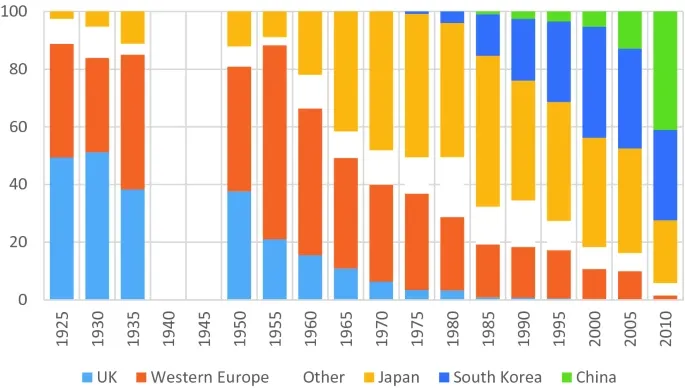Spoony Love's question on the Stock Market thread about the Japanese takeover of US Steel spurred this topic. The questions are:
1. Which companies or industries are so strategically important to the USA that we should not allow them to be taken over by foreign companies (or countries)?
2. If we do allow strategic companies to be acquired, which countries would you trust to be an acquirer?
Clearly, Anheuser Busch has already been acquired by the dang Belgians, so everything else is second place, at best.
For me on question 1: We have figured out that semiconductors are pretty key going forward, so it probably is clearcut that we need some onshore capabilities, especially since Taiwan (although a great ally) is not rock solid going forward. Aerospace is another, with planes, rockets, and defense capabilities being a clear-cut strategic need. Oil, steel, battery manufacturing? Not completely sure. Some form of auto industry - maybe? Not sure you can put Wall Street or being the world's financial hub in this category, but maybe it deserves consideration?
Question 2: I'd propose that our top political and strategic allies include Great Britain, Canada, Japan, Australia, Israel, and maybe Germany and France. Scandinavian countries could be included, but I'd put Italy and Spain a notch lower. Mexico is a curious frenemy situation. I hope that someday countries like India, Argentina, Brazil, Turkey, and even South Africa could make the list, but we're far from that right now.
I'd probably be comfortable with Nippon Steel acquiring US Steel, mainly because of the trustworthiness of Japan. We still have other (better?) steel companies in the mix, so US Steel isn't as critical as it once was.
Thoughts?
1. Which companies or industries are so strategically important to the USA that we should not allow them to be taken over by foreign companies (or countries)?
2. If we do allow strategic companies to be acquired, which countries would you trust to be an acquirer?
Clearly, Anheuser Busch has already been acquired by the dang Belgians, so everything else is second place, at best.

For me on question 1: We have figured out that semiconductors are pretty key going forward, so it probably is clearcut that we need some onshore capabilities, especially since Taiwan (although a great ally) is not rock solid going forward. Aerospace is another, with planes, rockets, and defense capabilities being a clear-cut strategic need. Oil, steel, battery manufacturing? Not completely sure. Some form of auto industry - maybe? Not sure you can put Wall Street or being the world's financial hub in this category, but maybe it deserves consideration?
Question 2: I'd propose that our top political and strategic allies include Great Britain, Canada, Japan, Australia, Israel, and maybe Germany and France. Scandinavian countries could be included, but I'd put Italy and Spain a notch lower. Mexico is a curious frenemy situation. I hope that someday countries like India, Argentina, Brazil, Turkey, and even South Africa could make the list, but we're far from that right now.
I'd probably be comfortable with Nippon Steel acquiring US Steel, mainly because of the trustworthiness of Japan. We still have other (better?) steel companies in the mix, so US Steel isn't as critical as it once was.
Thoughts?





